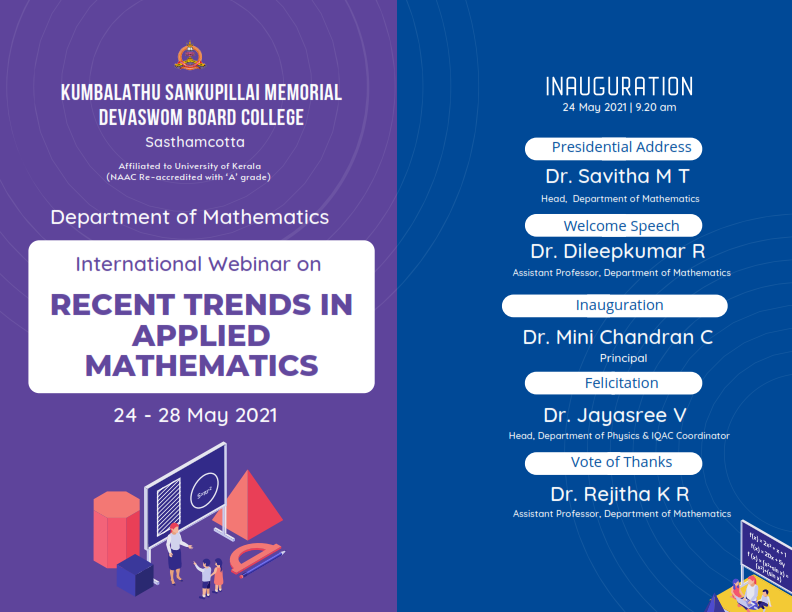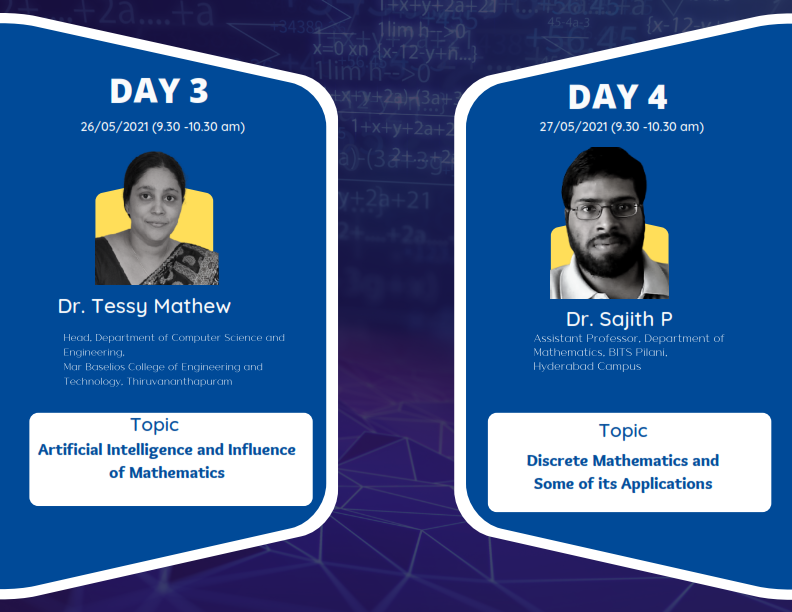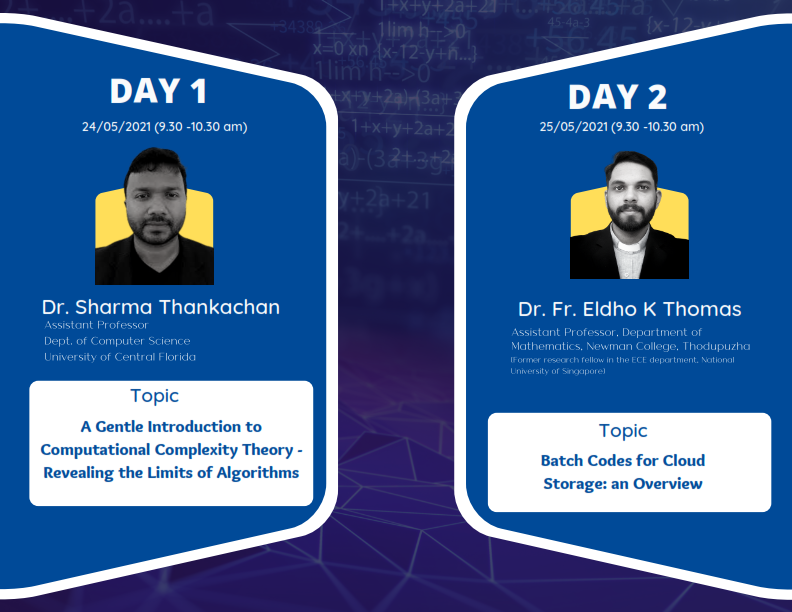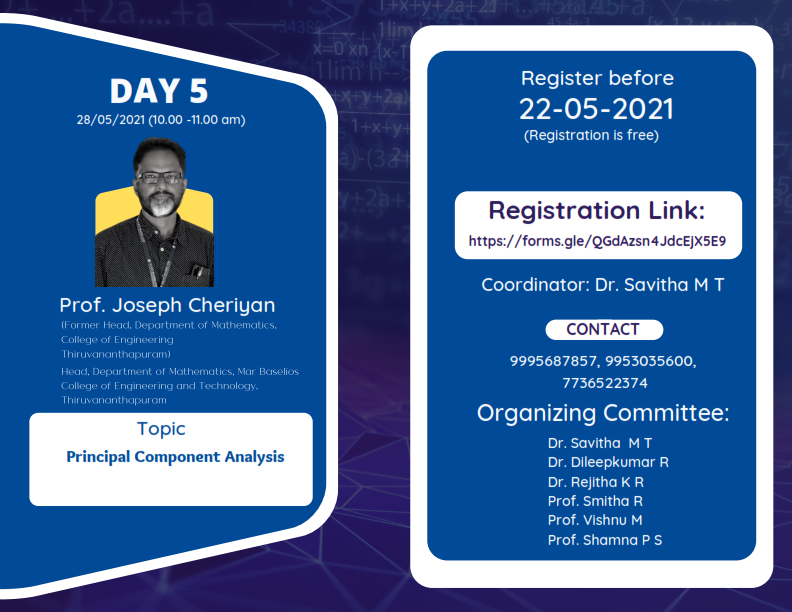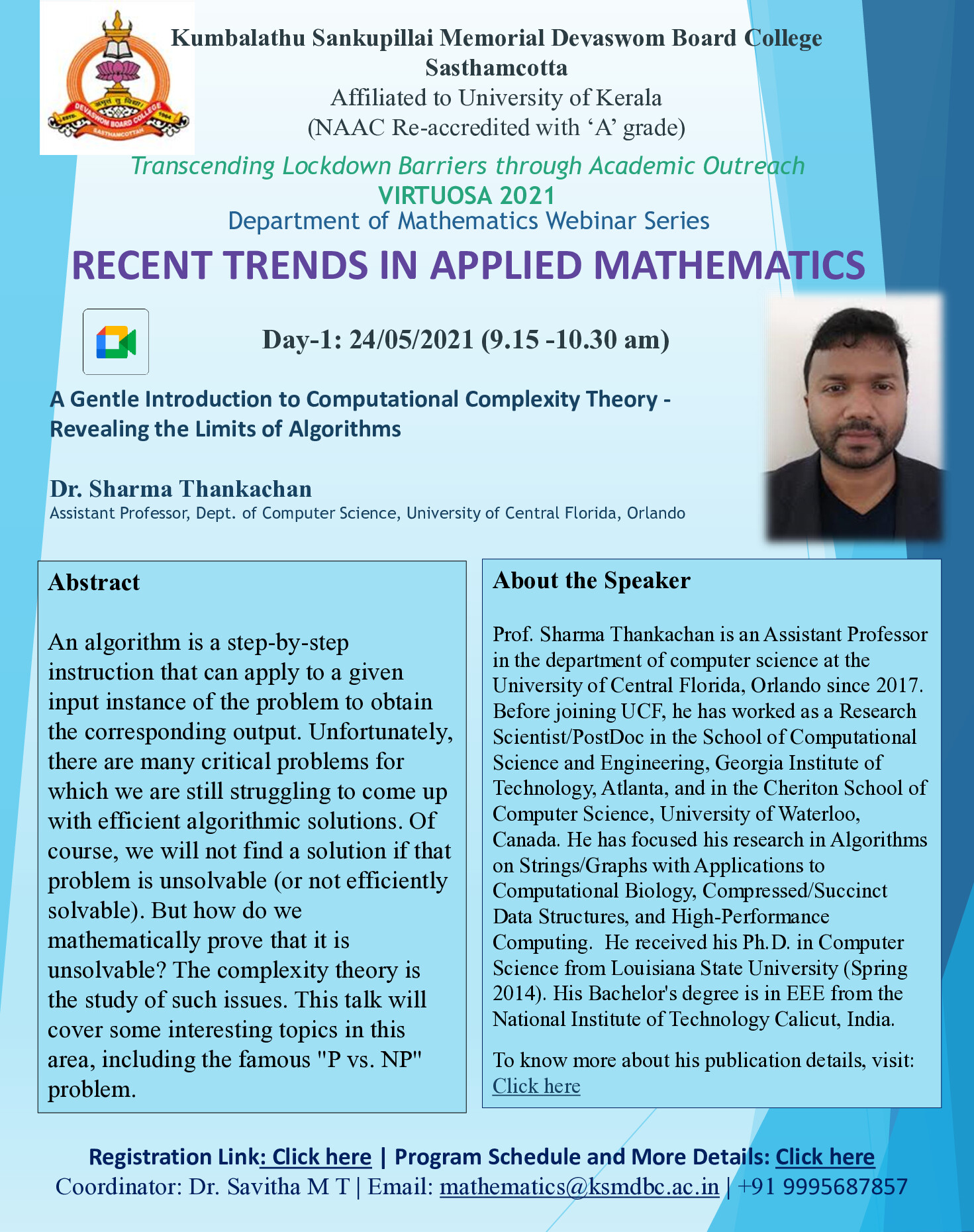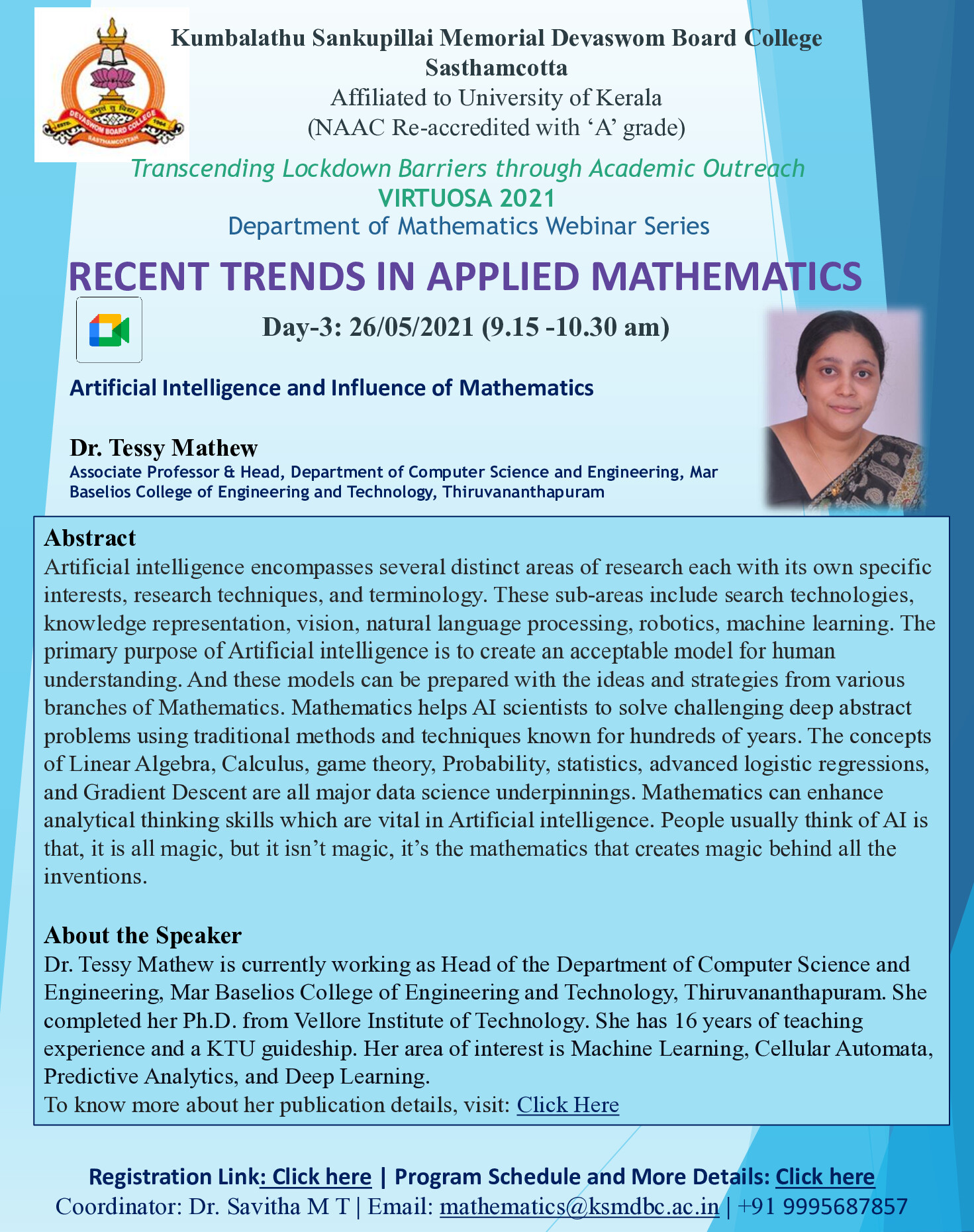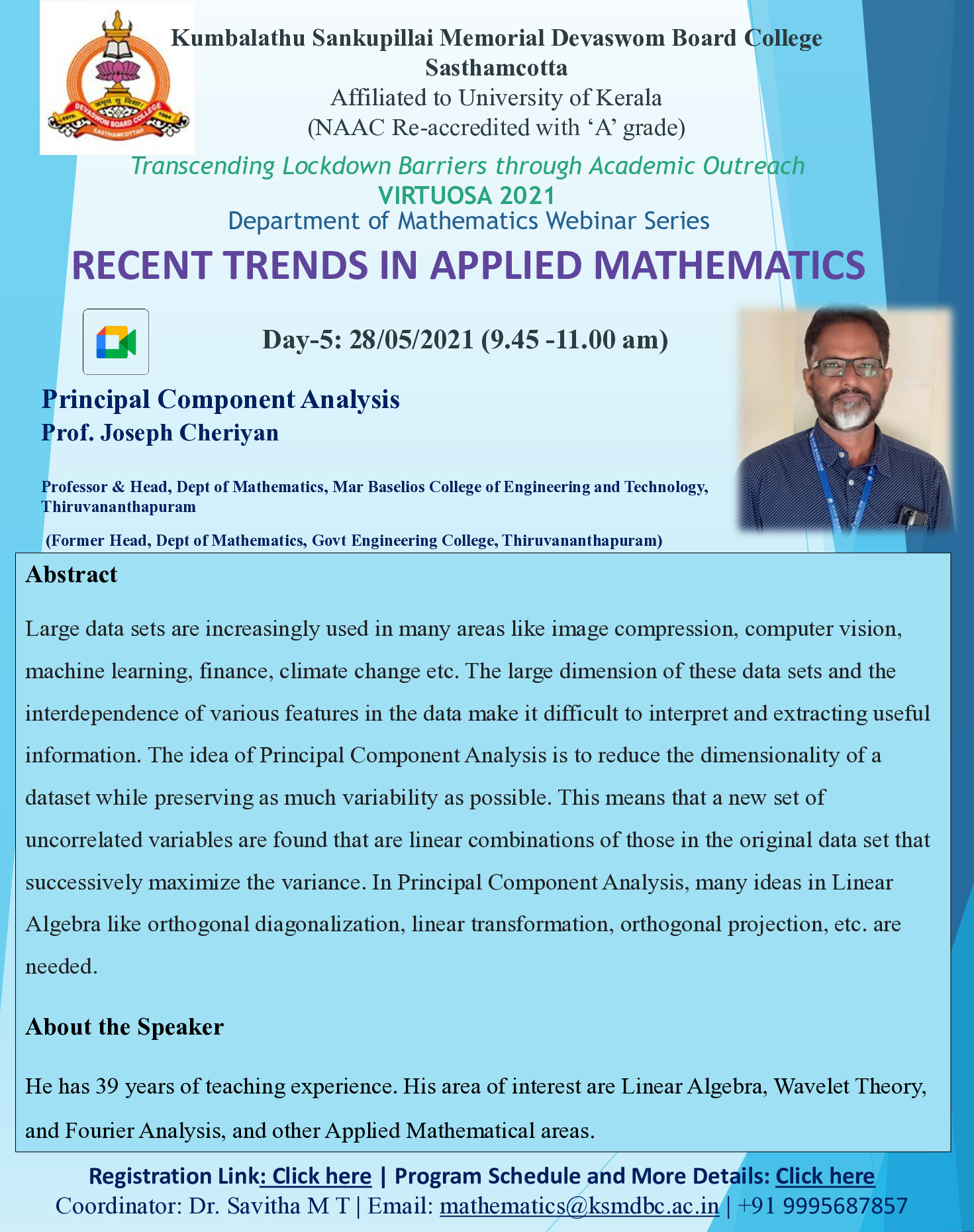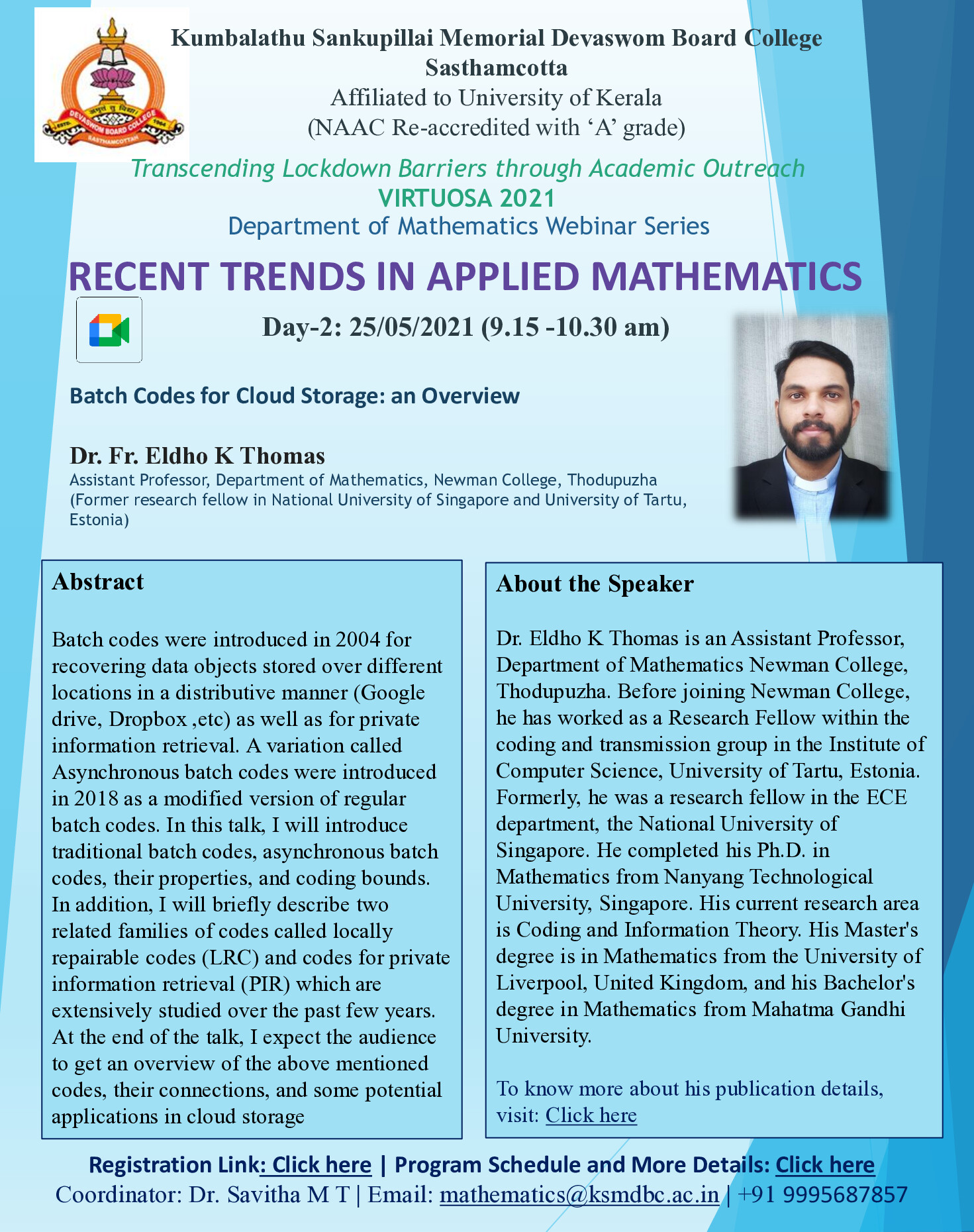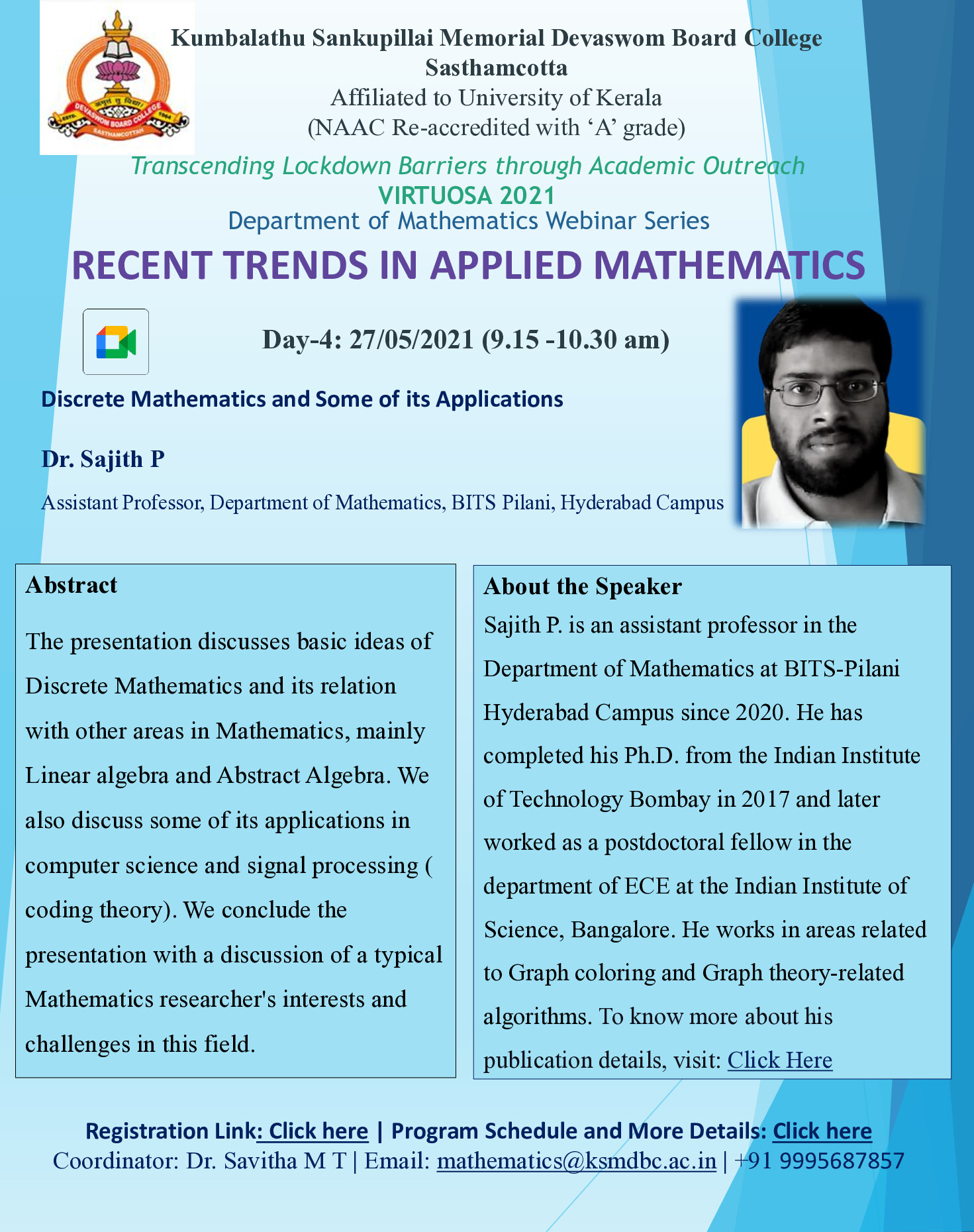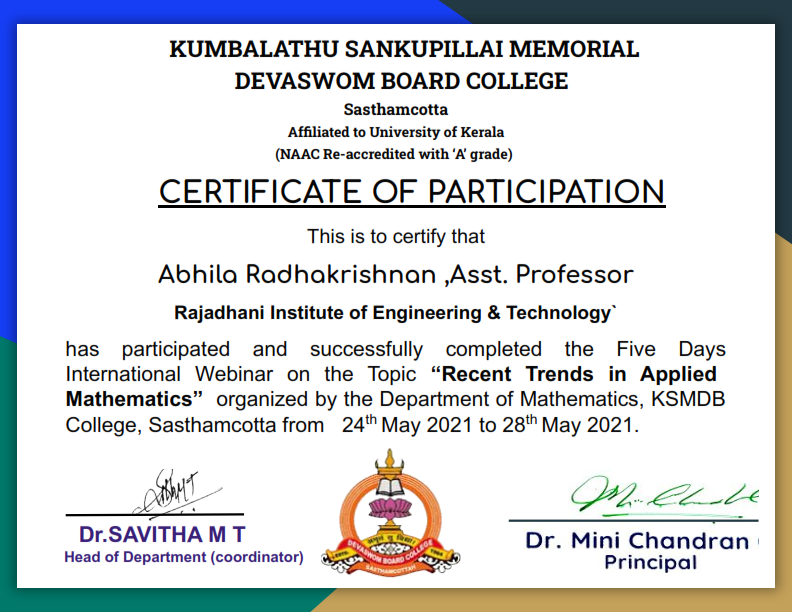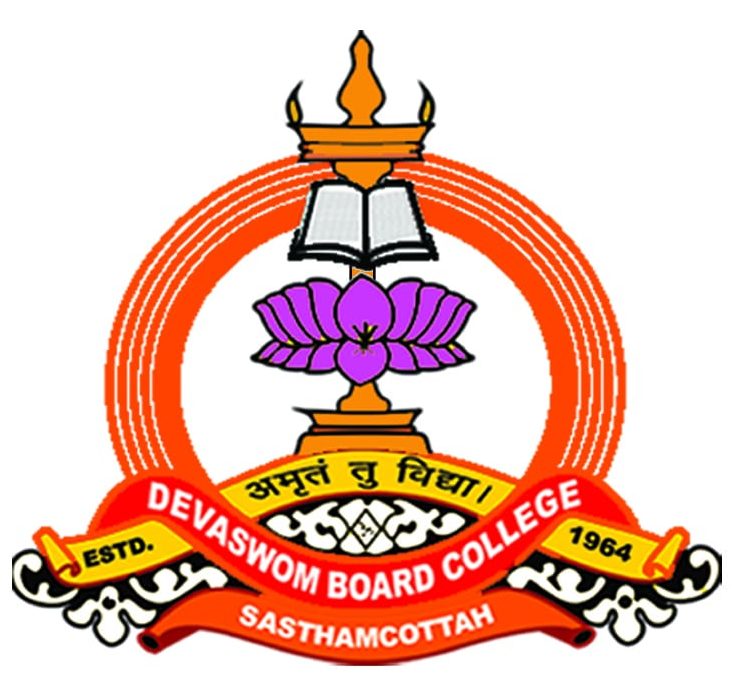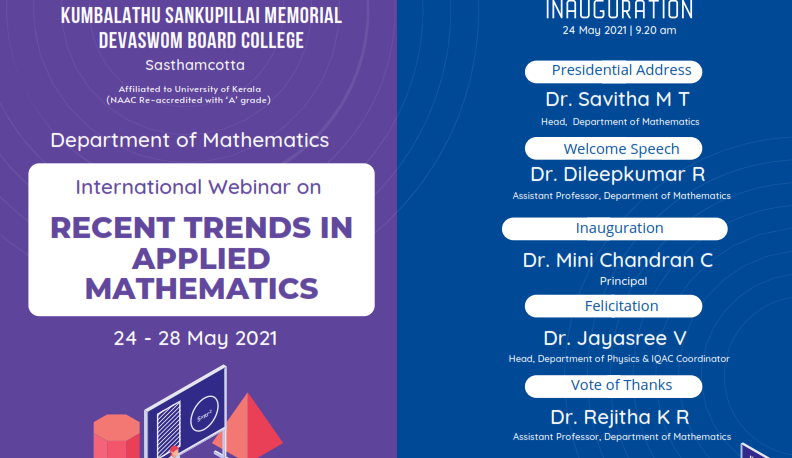International Webinar on
RECENT TRENDS IN APPLIED MATHEMATICS
Event Summary
Coordinator of the seminar: Dr. Savitha M T, Assistant Professor and HoD of Mathematics, KSMDB College, Sasthamcotta
Date: 24th May - 28th May 2021
Resource Person: Dr. S. Babu, Former HoD, Dept.of Mathematics, University College, Trivandrum
Video Lectures and more details of the webinar can be found here: https://sites.google.com/view/departmentofmathematicsksmdbc/home
Number of Attendees: 248 (Including students and faculties of various colleges)
Overview of the Webinars:
This webinar was organized by the Department of Mathematics in association with IQAC -Virtuosa 2021 of KSMDB College Sasthamcotta.
Applied mathematics has become an extremely important and useful discipline in the context of development of powerful computers. On the one hand, mathematics (in a broad sense) is the most efficient approach to model reality, especially complex reality. Moreover, it provides the best possibilities of reasoning. With cheap powerful computers, mathematics becomes implementable and unavoidable in designing, producing, deciding …etc.
On the other hand, mathematics has evolved considerably to extend its applicability to real problems. This is why applied mathematics is so alive and fast progressing. Needless to say, the connection between applied mathematics and information technology is an extremely fruitful approach to new ideas and a basic source of research topics.
The main objective of this five day workshop is to bring together the Experts, Faculty Members, Scientists, Research Scholars, PG students from Universities, Colleges, Scientific Organizations, and other Institutions of Higher Education from all over the country to discuss the recent trends and developments in the broad topics of the applied Mathematics and to promote exchange of ideas in various applications of mathematics in science and engineering. This workshop will provide an opportunity to young researchers to learn the current state of research & techniques.
We provided a participation certificate for all the participants, those who attended all five sessions.
Day 1: A Gentle Introduction to Computational Complexity Theory - Revealing the Limits of Algorithms
Resource Person: Dr. Sharma Thankachan, Assistant Professor, Dept. of Computer Science, University of Central Florida, Orlando
Google Meet link: https://meet.google.com/koq-sugf-nru
Abstract of the Presentation
An algorithm is a step-by-step instruction that can apply to a given input instance of the problem to obtain the corresponding output. Unfortunately, there are many critical problems for which we are still struggling to come up with efficient algorithmic solutions. Of course, we will not find a solution if that problem is unsolvable (or not efficiently solvable). But how do we mathematically prove that it is unsolvable? Complexity theory is the study of such issues. This talk will cover some interesting topics in this area, including the famous "P vs. NP" problem.
Day 2: Batch Codes for Cloud Storage: an Overview
Resource Person: Dr. Fr. Eldho K Thomas, Assistant Professor, Department of Mathematics, Newman College, Thodupuzha, Former research fellow in National University of Singapore and University of Tartu, Estonia
Google Meet link: https://meet.google.com/xxr-wzmr-kmk
Abstract of the Presentation
Batch codes were introduced in 2004 for recovering data objects stored over different locations in a distributive manner (Google drive, Dropbox ,etc) as well as for private information retrieval. A variation called Asynchronous batch codes were introduced in 2018 as a modified version of regular batch codes. In this talk, I will introduce traditional batch codes, asynchronous batch codes, their properties, and coding bounds. In addition, I will briefly describe two related families of codes called locally repairable codes (LRC) and codes for private information retrieval (PIR) which are extensively studied over the past few years. At the end of the talk, I expect the audience to get an overview of the above mentioned codes, their connections, and some potential applications in cloud storage.
Day 3: Artificial Intelligence and Influence of Mathematics
Resource Person: Dr. Tessy Mathew, Associate Professor & Head, Department of Computer Science and Engineering, Mar Baselios College of Engineering and Technology, Thiruvananthapuram
Google Meet link: https://meet.google.com/qnr-wgnw-net
Abstract of the Presentation
Artificial intelligence encompasses several distinct areas of research each with its own specific interests, research techniques, and terminology. These sub-areas include search technologies, knowledge representation, vision, natural language processing, robotics, machine learning. The primary purpose of Artificial intelligence is to create an acceptable model for human understanding. And these models can be prepared with the ideas and strategies from various branches of Mathematics. Mathematics helps AI scientists to solve challenging deep abstract problems using traditional methods and techniques known for hundreds of years. The concepts of Linear Algebra, Calculus, game theory, Probability, statistics, advanced logistic regressions, and Gradient Descent are all major data science underpinnings. Mathematics can enhance analytical thinking skills which are vital in Artificial intelligence. People usually think of AI is that, it is all magic, but it isn’t magic, it’s the mathematics that creates magic behind all the inventions.
Day 4: Discrete Mathematics and Some of its Applications
Resource Person: Dr. Sajith P, Assistant Professor, Department of Mathematics, BITS Pilani, Hyderabad Campus
Google Meet link: https://meet.google.com/koq-sugf-nru
Abstract of the Presentation
The presentation discusses basic ideas of Discrete Mathematics and its relation with other areas in Mathematics, mainly Linear algebra and Abstract Algebra. We also discuss some of its applications in computer science and signal processing ( coding theory). We conclude the presentation with a discussion of a typical Mathematics researcher's interests and challenges in this field.
Day 5: Principal Component Analysis
Resource Person: Prof. Joseph Cheriyan, Professor & Head, Dept of Mathematics, Mar Baselios College of Engineering and Technology, Thiruvananthapuram, (Former Head, Dept of Mathematics, Govt Engineering College, Thiruvananthapuram)
Google Meet link: https://meet.google.com/qjy-dicc-qcb
Abstract of the Presentation
Large data sets are increasingly used in many areas like image compression, computer vision, machine learning, finance, climate change etc. The large dimension of these data sets and the interdependence of various features in the data make it difficult to interpret and extracting useful information. The idea of Principal Component Analysis is to reduce the dimensionality of a dataset while preserving as much variability as possible. This means that a new set of uncorrelated variables are found that are linear combinations of those in the original data set that successively maximize the variance. In Principal Component Analysis, many ideas in Linear Algebra like orthogonal diagonalization, linear transformation, orthogonal projection, etc. are needed.
